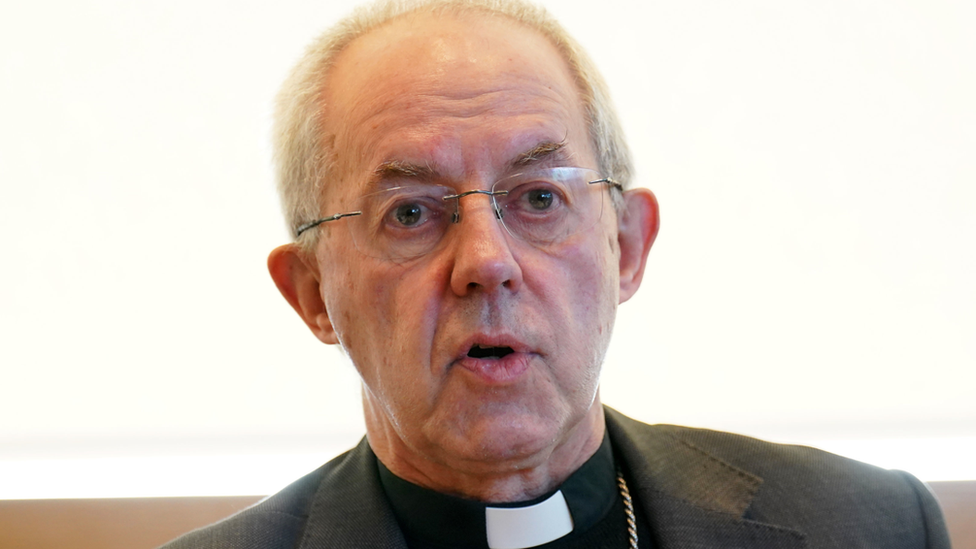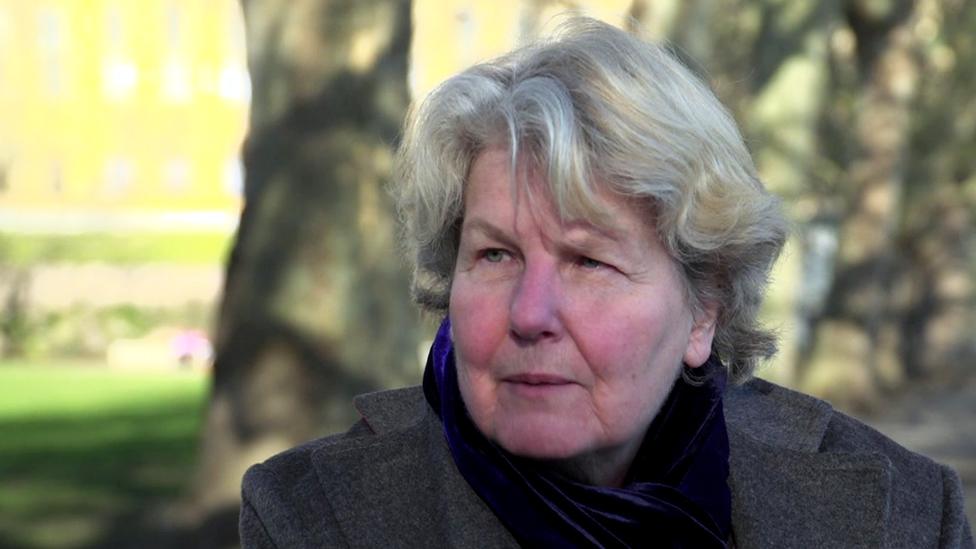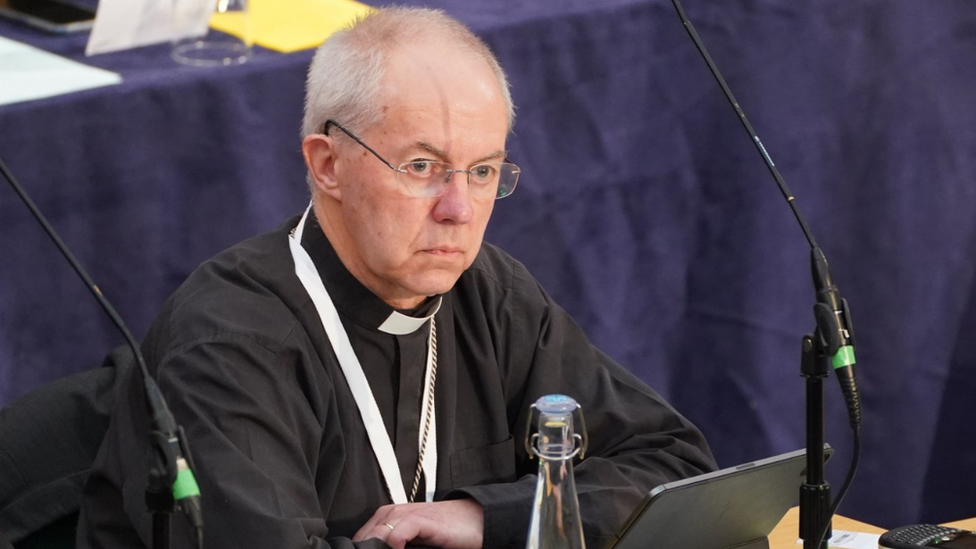Same-sex marriage: 'MPs tried to force church on issue,' says archbishop
- Published

Archbishop Justin Welby was speaking in Ghana, following recent changes to the Church of England's stance same-sex marriage
The Archbishop of Canterbury, the Most Rev Justin Welby has spoken of being "threatened with parliamentary action" in an attempt to "force same-sex marriage" into the Church of England.
He was speaking at the global Anglican Consultative Council meeting in Ghana.
It comes after reforms within the church allowing the blessing of same-sex couples in civil partnerships.
The change was made after a motion was passed by the General Synod, the church's legislative body, this month.
Its position on gay marriage will not change and same-sex couples will still be unable to marry in church.
The Telegraph reports Mr Welby, external met with MPs at the House of Commons last month, and pushed back on further changes to its status on same-sex marriage.
Speaking ahead of the changes, broadcaster Sandi Toksvig said a meeting in January with the archbishop, last month was "very disappointing".
Ms Toksvig is a high-profile campaigner on LGBT+ issues, and although not a member of the church, she told the BBC she spoke out because she felt the impact of the message being sent out by the bishops was having an impact far beyond the Church.
The changes in the church have been unpalatable to some conservatives, but also fall well short of what many progressives had wanted.
Giving the presidential address on Sunday, Mr Welby said "many" members of the General Synod have "dismissed" his concerns about recent reforms.
He told those at the meeting, held in the Ghanian capital Accra "rules about sexuality in the Church of England" have been tabled for discussion as a "result" of growing atheism in the UK.
The archbishop said in the global north, Christian values of "community and mutual responsibility" have been "almost eliminated" in favour of "individualism".

Justin Welby's comments in Ghana illustrate the range of opinions he is trying to hold together.
He was addressing an audience of Anglicans from around the world, including some from countries with laws that criminalise homosexuality.
Ghana's own parliament is currently debating a sweeping new anti-LGBT bill. To many at the meeting in Accra, the Church of England's decision last week to allow prayers of blessings for same-sex couples contradicts how they interpret the Bible.
Yet to many in the West, the Church of England's refusal to allow church weddings for gay couples is repressive and out of step with the majority of society.
The Archbishop of Canterbury is trying to hold those two positions together.
As to whether he is really "threatened with parliamentary action", it is true that MPs have held discussions about possible measures to pressure the Church into allowing same-sex marriages.
But there is no indication yet that the government would support such a move, and the subsequent conflict it would bring with the Church of England.

Danger of 'nones'
He told those gathered there was a "danger" posed by a growing number of atheists, who he refers to as "nones".
"I don't mean N-U-N-s," he said. "I mean those who when asked about their faith, say: 'None. I have no faith'," he said.
"The result is clear. In the last few weeks, as part of our discussions about sexuality and the rules around sexuality in the Church of England, I talked of our interdependence with all Christians, not just Anglicans, particularly those in the global south with other faith majorities.
"As a result I was summoned twice to parliament, and threatened with parliamentary action to force same-sex marriage on us, called in England equal marriage.
"When I speak of the impact that actions by the Church of England will have on those abroad in the Anglican communion, those concerns are dismissed by many, not all, but by many in the General Synod."
A new morality
The archbishop also appeared critical of movements towards greater bodily autonomy and assisted suicide, saying "we've replaced morality and Christian faith with personal control over our bodies".
"We are in a completely different culture in the financially richer world, to where we were 30 years ago."
He claimed that "birth with genetically-designed babies is not far away".
"And death is something that so many believe we have a right to choose in the way and at the time we want."
The Archbishop of Canterbury is a senior member of the House of Lords, and has led debates in the chamber.
In the speech, Mr Welby referenced the former Archbishop of Canterbury George Carey's campaigning on assisted suicide in Westminster.
He said his predecessor had "spoken strongly in favour of assisted suicide in the Houses of Parliament - in the House of Lords".
He also spoke of an emerging morality designed for "the wealthy, the powerful and the intellectually well-educated".
"It is a morality that does not believe in human sinfulness and failure.
"It does not believe in forgiveness, it does not believe in hope.
"This is where the Church struggles."
- Published8 February 2023

- Published9 February 2023
